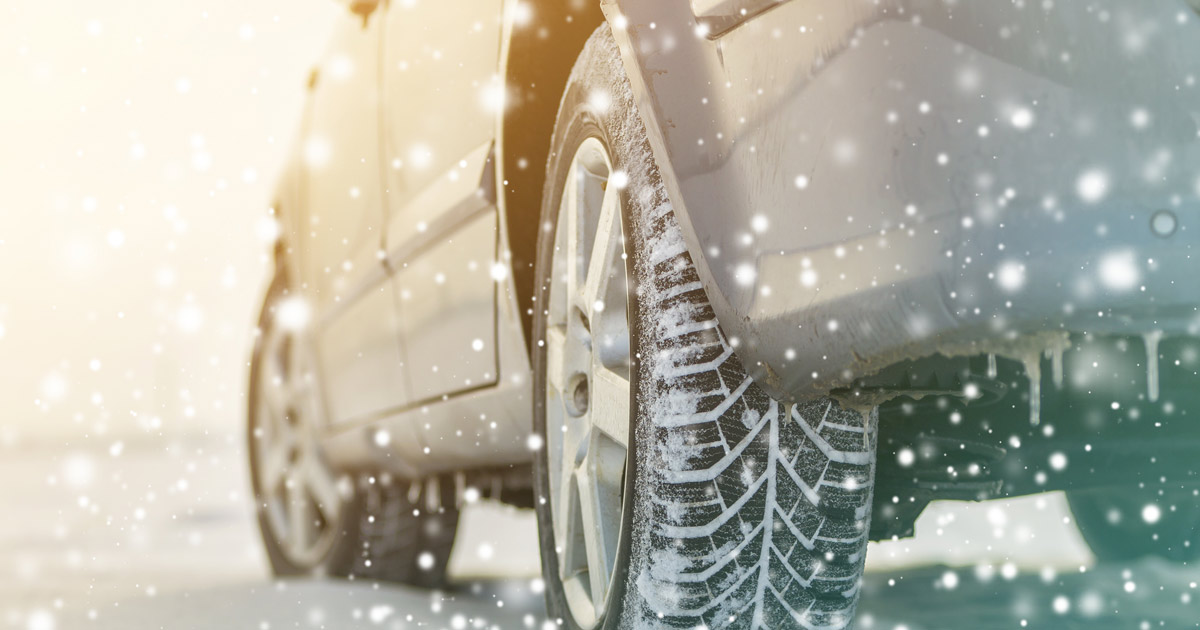Driving in winter can be a harrowing experience. Cold temperatures, snow, and ice create extremely dangerous road conditions. Nearly 500,000 car accidents and 2,000 fatalities each year are attributed to winter weather, according to the AAA Foundation for Traffic Safety.
When the roads and our vehicles become snow and ice-covered and visibility decreases, your ability to drive safely can become seriously compromised. Winter weather often makes driving extremely challenging, but preparation and attention can help minimize some of the stress and help you travel more safely.
Do Not Drive at All
The safest way to avoid an accident on snowy roads is to avoid driving during especially poor weather conditions. Stay home and wait for the weather to improve and road crews plow and treat the roads. Make arrangements with your employer to work from home or arrive late once conditions improve.
Take Your Time
Pay attention to weather forecasts, and if bad weather or storms are anticipated, allow yourself more time to address the fresh precipitation and travel. Cleaning your car, traveling at slower speeds, taking an alternate route in road closures are more time consuming, so plan for extra time in your morning or evening routine.
Clear Your Vehicle
Remove snow and ice from your car, making sure to clear all windows and lights of ice and snow to provide the best visibility. Thoroughly clear the entire car of snow and ice. Leaving snow and ice on the roof, trunk, and hood can be dangerous to you and other drivers. The flying snow and ice can cover windows suddenly causing temporary blindness, and ice can break windows, and lights and cause damage to the vehicle.
Increase Visibility
Before hitting the road, inspect headlights, brake lights, turn signals, and hazard lights to ensure they are functioning properly and cleared of snow and ice to provide increased visibility and other motorists to see you.
Prepare Wipers
Windshield wipers are needed in winter more than any other time of the year, and cold and weather conditions cause them to wear out more quickly. Check the blades for wear and tear and replace as needed. Snow and ice tend to pool around the base and arms of wipers, freezing them in place, which can be difficult to remove. If snow and ice are expected pull the arms up when you leave the car to prevent the buildup. Use a de-icing type of windshield wiper fluid, check the reservoir frequently, and carry extra in the car.
Inspect the Tires
Tires with good tread are essential for driving during hazardous road conditions. Most accidents that occur during the winter are caused by the tires losing traction with the road. When this happens, the tires slide over the surface and the driver loses control of the vehicle. Check the tires for worn tread or baldness, and replace them with snow tires or another type with sufficient tread and deep grooves. Cold temperatures cause the tire pressure to drop, so pay particular attention to the pressure, and add air to your tires as needed.
Check the Battery
Just like tires, cold weather causes the power in car batteries to drop. Cold reduces the power and driving range of electric and hybrid-electric vehicles as well.
Fill Up the Gas
Keep the gas tank near full as much as possible. Road conditions and traffic accidents reduce speeds, congests traffic flow, and can even bring traffic to a standstill. Keeping a near-full or full tank of gas allows you to keep the motor running for heat and prevents you from becoming stranded. Keep electric and hybrid-electric cars plugged in overnight to keep the battery warmer to reduce power drain.
Plan Your Route
Before leaving home or work, check weather forecasts, road conditions, traffic accident reports, and road closures and adjust your route ahead of time.
Know Your Car
Study your vehicle’s safety features in the driver’s manual and how to use them. Familiarize yourself as to whether your car is front, rear, or all-wheel drive, has four-wheel-drive, anti-lock brakes, traction control, and a stability system and how to use these features.
Make an Emergency Kit
Not being prepared for winter can have fatal consequences. Weather and accidents cause road closures, which can strand motorists for long periods of time. Stock an emergency kit in your car before winter arrives and replenish items as you use them.
Some items to consider for your emergency kit:
- Tools to clear your car of snow and ice build-up, such as an ice scraper, broom, or shovel.
- Flashlights, jumper cables, emergency markers and flares, and a jacket or other clothing with high-visibility reflective markings.
- A bag of sand or cat litter to use as tire traction if they become stuck in snow.
- Additional warm clothing and blankets in case you are forced to stay in your vehicle for a long period.
- Food, water, and any necessary medications.
- Chargers for all electronic devices so you can make emergency calls for help.
Reduce Your Speed
Traveling wet, snowy and ice-covered roads at the posted speed limit or higher greatly increases the risk for an accident. Tires lose traction more easily when the wheels are moving faster, causing them to slide across the surface of ice and snow rather than gripping and the driver to lose control.
Slow Acceleration and Deceleration
When proceeding from a stopped position, such as at a streetlight or intersection, accelerate more gradually than you would on dry roads. Increase speed incrementally, and approach turns and lane changes slower.
When decelerating, such as approaching a streetlight or taking an exit ramp, begin slowly braking further away than you would on dry road. Starting and stopping at a slow gradual pace allows the tires to gain better traction and avoid sliding.
Maintain More Distance
In snow and icy conditions, the recommended distance between vehicles more than doubles that of driving over dry roads. Putting more distance between you the vehicles in front of you reduces the risk of a rear-end collision, allows you more reaction time, and the ability to move out of the way more safely should accidents happen in front of you.
Listen to the Road
Tires make a louder sound when rolling across snow than they do on wet and icy roads and can alert you to changing road conditions if you are paying attention. Tires make little or no noise when rolling over ice. If the noise coming from your tires suddenly ceases, you are likely encountering ice. Stay alert by turning off music, avoid talking on the phone, and do not wear headphones or ear buds.
Be Cautious of Elevated Roadways
Elevated sections of the road or those with little to no ground under them, such as bridges, overpasses, and ramps, are the first to freeze. The likelihood of encountering black ice on these types of structures is much higher, so reduce speed and drive over them cautiously.
Pay Attention
This is good practice every time you drive, but in winter weather, do not engage in distracted driving. Do not text, read messages and email, make calls, eat, put on makeup, play with a child or pet, or do anything else that causes you to be distracted from driving.
Virginia Beach Car Accident Lawyers Aid Clients Involved in Winter Weather-Related Accidents
Winter driving can be dangerous and frightening, and even when exercising the best precautions, accidents still happen. If you have been involved in a collision due to winter weather conditions, our Virginia Beach car accident lawyers at East Coast Trial Lawyers are here to help. Call us at 757-352-2237 or contact us online to schedule a free consultation. Located in Virginia Beach, we serve clients throughout Chesapeake, Eastern Shore, Hampton, Newport News, Norfolk, Portsmouth, and Suffolk, Virginia, as well as North Carolina and nationwide.


